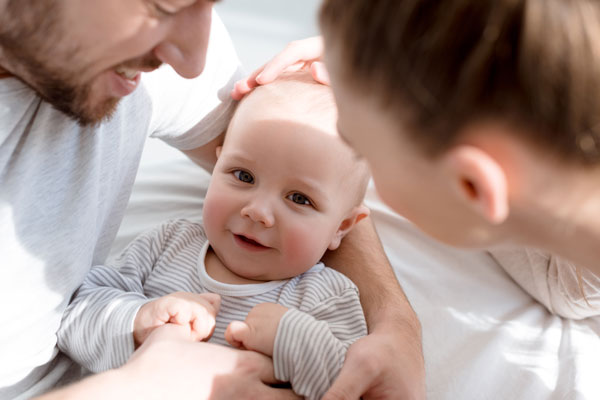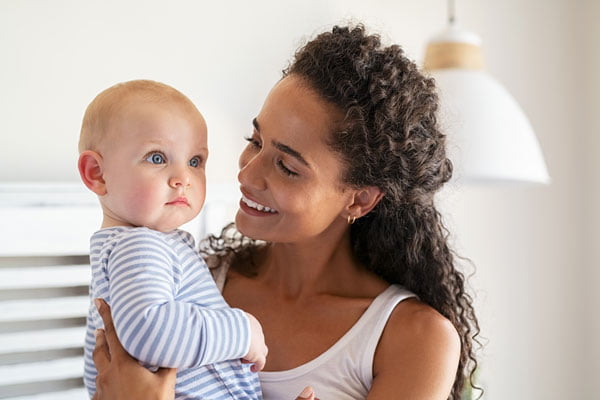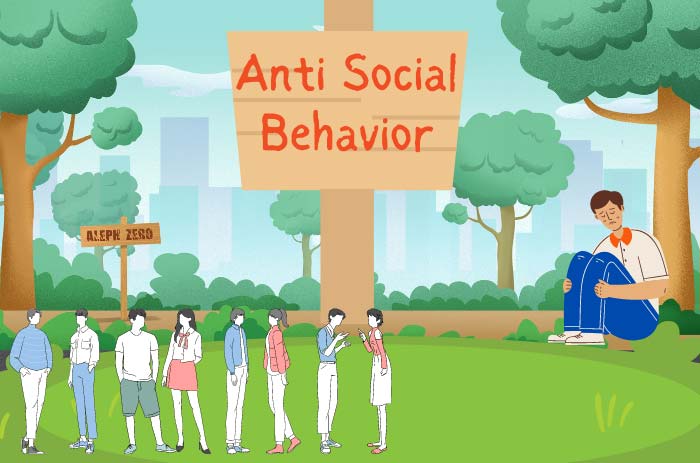Are you considering adoption as a means of starting a family but have various questions in your mind about the pros and cons of adoption? This article aims at providing you all the possible advantages and disadvantages of adoption. In this article, I first discussed what adoption is and various types of adoption. Then I addressed the pros and cons of adoption that will address all your concerns.

Adoption is not an easy decision to make. It is frowned upon in some families, while it is the only chance to have a baby for other families. Adoption is a highly significant decision a family can make. Like every critical decision, there are certain pros and cons of adoption. Before going into the advantages and disadvantages of adopting a child, let’s look at the meaning of adoption and different types of adoptions.
What is adoption?
Adopting is a social, emotional, and legal process in which a child (adoptee), who cannot be raised by his birth parents, becomes a permanent and regular member of another family (adoptive family). It is an establishment of a lifetime relationship between the adoptee and adoptive family.
Different types of adoption
Adoption can occur in various ways depending on the procedure and role of the birth and adoptive parents. Following are the most common forms of adoption.
- Foster care adoption
When the children are abandoned or neglected by birth parents or the birth parents cannot take care of the child due to medical, psychological, or legal conditions, they are placed in foster parents’ care and custody. Once the parent’s parental rights are terminated by the state, or the birth parents voluntarily or involuntarily relinquish parental rights, the child becomes available for adoption. In this case, adoption by the foster family is the first choice. Another benefit of foster care adoption is that it is less expensive than other types of adoption.
- Relative or kinship adoption
Sometimes, when the birth parents cannot raise their children, a family member can adopt that child, i.e., an aunt adopts her nieces or nephews. Moreover, grandparents can also adopt their grandkids.
- Stepchild adoption
In some cases, a stepparent may want to adopt a child after being married to one of their parents. Different states have different rules and regulations regarding this adoption, including the length of marriage required and in-home visits.
- Adult adoption
Yes, this is also a thing. In some instances, adult adoption is also carried. For example, a stepparent wants to adopt the adult child of their spouse, or a foster care family wants to adopt a foster child who is no longer a child.
- Private adoption/domestic infant adoption
Private adoption, also called domestic infant adoption, is the most expensive form of adoption and is usually carried through adoption agencies and organizations. In this case, once you registered or put your application in an agency, you will be first approved by the agency if you are capable of raising and parenting a child effectively.
Then you will be put on a waiting list, which can last for months to years. Once a birth mother gives up her child for adoption, the adoptive family will be responsible for all the pregnancy-related expenses. After the baby’s delivery, there will be legal work, and finally, the child will become part of the adoptive family. Private adoption can be closed or open adoption.
- Closed adoption
In a closed adoption, no identifying information is shared and exchanged between the birth and adoptive families, and there is no contact. You will receive non-identifying information, i.e., medical history. Once the adoption is finalized, you cannot approach these records. However, in some cases, the records are available to the child once he is 18 years old.
- Open adoption
In an open adoption, there is some communication among birth parents, adoptee, and adoptive parents. The connection can include exchanging emails, phone calls, letters, pictures, and occasional visits.
These are some of the highly practiced adoptive options available for the parents who want to start their family but cannot have a child because
- they are same-sex partners,
- the partners have medical complications,
- infertility,
- lack of time for pregnancy,
- cannot bear physical changes because of pregnancy and many more.
Pros and cons of adoption
But before making a choice, give a read to the below mentioned several pros and cons of adoption. This will help you in making an informed decision.
Pros of adoption
- Your lifelong dream will be fulfilled
Most adoptive parents have a long journey before they come to this approach of having a child. Many parents went through infertility treatments, miscarriages, expensive modes of conception, including test-tube babies, in vitro fertilization (IVF), and much more. These are physically, psychologically, and financially taxing procedures that further fuel your desire to have a baby.
When your adoption gets finalized, and you hold your baby for the first time, it is priceless. All the pain, agony, and misery will be forgotten as there is a beautiful and adventurous journey ahead of you. Adoption has saved many relationships, families, and children as well.
- You will get to be a parent and have a family.
Being a parent, you can do whatever you dreamt of doing with your child. You can decorate his room, buy pretty clothes, toys and accessories and can play with him all you want. There will be sleepless nights and days full of tantrums, and there will also be hugs, kisses, and I love you. This is a journey which will surprise you every moment, pleasant or worse.
But either way, you will grow as a person. You will identify your shortcomings and also your strengths. You will learn to forgive and give unconditional love and acceptance. It is all magical and too tricky. But it will be what you always dream of. You can create a happy and healthy family that you always wanted.
- The child will be able to get a life full of opportunities.
Most of the mothers who give up their child for adoption have a difficult life and journey.
- They can be teenage mothers who cannot support their children because of their unstable financial condition.
- They can be mothers who have psychological disorders or have a legal complication.
- There also are mothers who have adult children and cannot afford a new child,
- or a mother who doesn’t want to or cannot raise a child as a single mother.
These mothers have to go through various pros and cons before giving up their baby for adoption. Whatever the case is, they don’t want to abort the baby. Instead want their child to have a chance at life, to have a better living than they can provide.
You can be the only chance for that child to have a dignified and joyful life. You can provide a healthy and happy home to that child, which otherwise won’t be possible. Research studies proposed that adoptive parents usually offer ideal living conditions and lifestyle options to their adoptive children because they have prepared for years to take this step.
They are often financially stable and emotionally ready to raise a child and give them various prospects, including excellent education and provision of funds for higher education, participation in extracurricular activities, family vacations, ideal holidays, and much more. This all suggests that an adoptive parent can provide the best for their child.
- You can have an expressive relationship with the birth mother (in case of open adoption)
Open adoption seems scary and doubtful as your child is in touch with their birth parents and family members. Still, in the long run, it is beneficial not only for you but also for the child’s welfare. When both the adoptive parents and the child know the birth parents, there will be fewer ambiguities and suspicions. The child will know his original family and get to hear his birth parents’ point of view. The adoptive parents will see the child’s history, including family and medical. They can always approach the birth mother in case of need or emergency.
When you become a parent, you will realize how difficult it is to give up your child. In that instance, you will understand the misery and pain of the birth mother. But she only wants the best for her child. This will change your perspective and make you modest and humble.
- You will be saving a child and a future generation from getting destroyed in the hands of society.
The children who do not get adopted remain in highly dysfunctional households where parents can be neglectful, abandon their children, be an addict, or have a severe psychological illness. In such instances, the children will be homeless; they will face unemployment because of lower education, get involved in substance and addiction, teenage pregnancy, and domestic violence.
Such children are more likely to engage in criminal activities, which can result in incarceration. So, if you adopt a child, it is beneficial not only for you but also for this community and the coming generations. If you can afford adoption, you should go for it and save these children from getting fade away in this harsh and bitter society.
Cons of adoption
These are to mention a few of the advantages of adopting. However, there are also some disadvantages when you opt for adoption, which is discussed below.
- The adoption process is lengthy, expensive, and stressful.
Many couples or individuals who want to adopt parents cannot fulfill their wishes because of the expense. Adoption is expensive but so do all the valuable experiences and belongings. An ethical and successful adoption process has a lot of steps and services. However, if you want your adoption process to be safe without problems, complications, and doubts, and you also want the birth mother to be satisfied and comfortable with this adoption, be prepared for the expenses.
If domestic adoption is expensive for you, you can also opt for foster adoption. Still, it has its own challenges like every journey. But this expense and stress are nothing compared to the misery you faced in the previous years while trying and waiting for conception and pregnancy to happen. So, in the end, this all worth it.
- Cons of open adoption
Although open adoption is highly encouraged by professionals, it is not always a smooth process for all parties, including the birth parents, adoptee, and adoptive family. Although the adoption agencies try to spell all the guidelines regarding open adoption agreement, i.e., method and frequency of contact, there is always a chance of disagreement among parties.
The adoptive family may not want to have frequent contact with the birth parents because of certain doubts. The birth parents may fail to contact as per agreement because they cannot, or the child doesn’t want to contact birth parents but feels obligated to stay in touch. Thus, open adoption requires a lot of communication, understanding, and commitment from all parties. However, the advantages of open adoption outweigh the cons.
- Cons of closed adoption
Sometimes the birth mother chooses a closed adoption in which the parties don’t have any contact. Closed adoption may seem like a good option as the child has to focus on one set of parents and have a less confused and complicated life. But as the child grows, he will have questions regarding his history and birth parents. He could experience an adoptive identity crisis if the concerns are left unaddressed.
There will be questions, including ‘who am I as an adopted person? What does being adopted mean to be? And how does this fit into my understanding of myself, relationships, family, and culture? They will try to explore and find answers to their questions (Von Koff & Grotevant, 2011). In some cases, the parties have to wait until the child is 18 and can have information regarding his birth parents. Before that, it will be or can be confusing for the child. That is why professionals recommend open adoption.
- You can have a family crisis
Suppose you already have children and adopt a baby. In that case, it can be difficult for you, your children, and the adopted child to get along initially. Your child or children may feel neglected, and the adoptive child may feel like he doesn’t belong to your family.
Sometimes, other family members can have a hard time accepting your adoptive child and may make them feel unwelcome or unwanted, intentionally or unintentionally. It is a great responsibility on your part to provide your adoptive child a nurturing and hospitable living, which can be difficult. Still, if you are committed to this, then you can do this.
- Challenges of adopting a young or older child
Some people think that adopting an older child is more comfortable as it doesn’t require much effort on your part, but this is so not true. Adopting a young child is difficult and challenging. He comes from a different family set up with varying beliefs, morals, ethics, and traditions.
Older children who are adopted often experienced prenatal drug exposure, premature birth, low birth weight, abuse, neglect or abandonment, and multiple placements to foster care settings before adoption. There can be behavioral problems like anger, shyness, or overeating, which you are not comfortable with.
Nadeem and colleagues (2017) suggested that adopted children are at higher risk of emotional and behavioral issues. They can show symptoms of oppositional defiant disorder and attention-deficit/hyperactivity disorder. But these behaviors are associated with higher caregiver strain level and parenting stress. However, it is also suggested that the behavioral issues may escalate during the first year of adoption but gradually wean off. In this case, you need to carefully structure your relationship and improve your child’s behavior as per your views and beliefs.
These are some of the highly significant pros and cons of adoption. For most individuals, the advantages of adoption heavily outweighed the disadvantages as it will provide them with a family and who says parenthood is easy. Whether it is your biological child or adoptive child, you always need to do work and effort to earn a parent’s designation.




